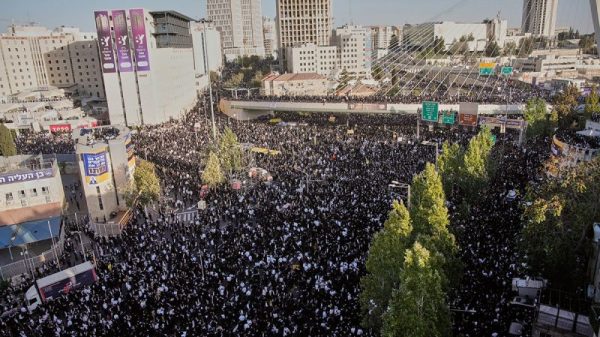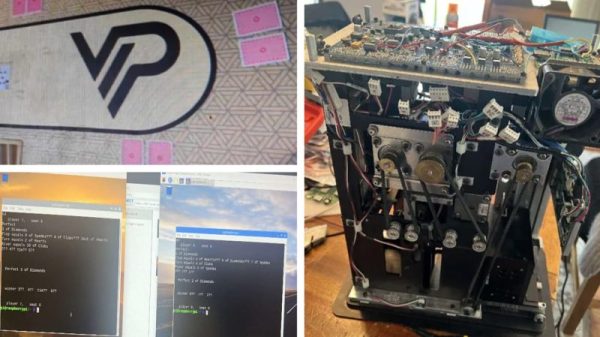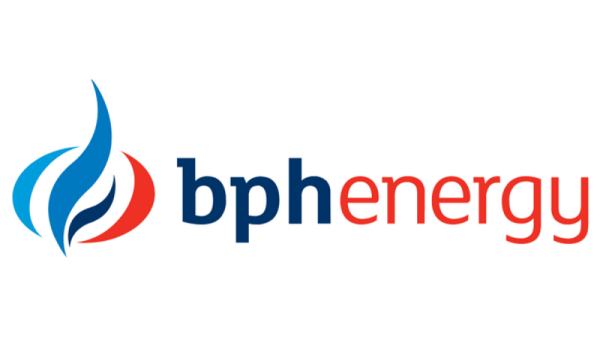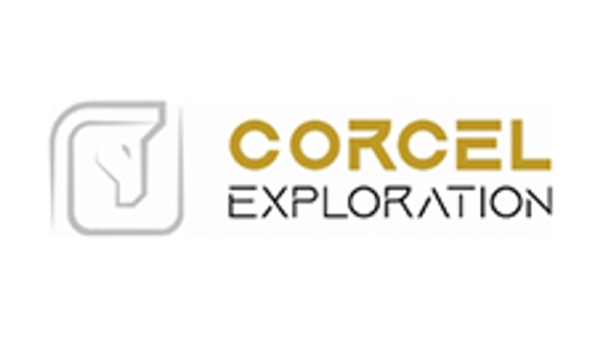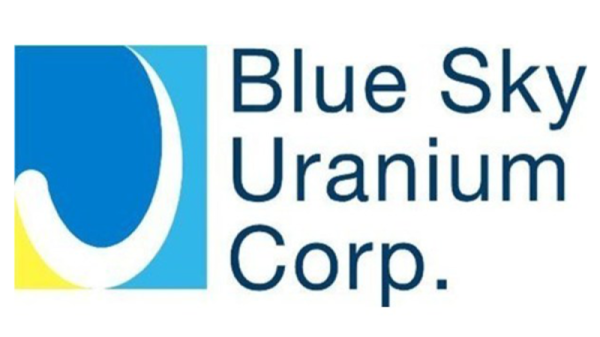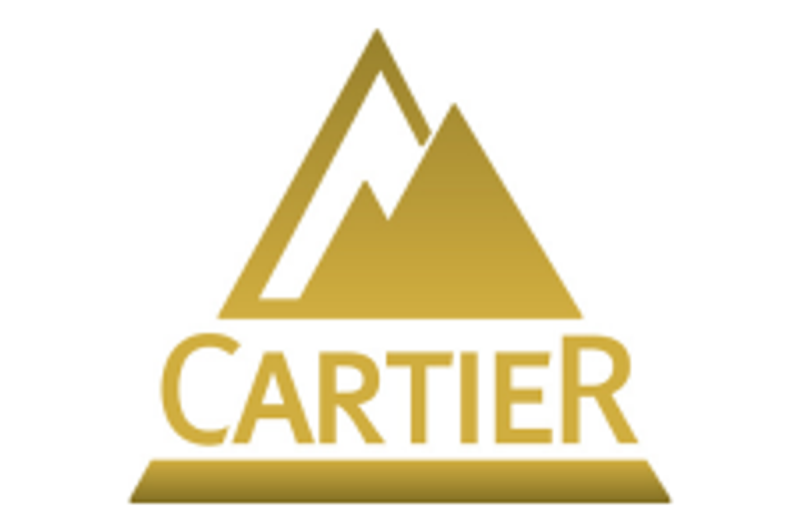Cartier Resources Inc. (″ Cartier ″ or the ″ Company ″) (TSXV: ECR,OTC:ECRFF; FSE: 6CA) is pleased to announce the third batch of results from the fully funded 100,000-m drilling program (2 drill rigs) for the Contact Sector and more precisely, the North Contact Zone (NCZ), on its 100%-owned Cadillac Project, located in Val-d’Or (Abitibi, Quebec). The NCZ consists of three parallel high-grade gold zones: NCZ (1), NCZ (2) and NCZ (3).
Strategic Highlights from Contact Sector
Drill Results of NCZ (Figures 1 & 2)
NCZ (3) intersected in hole CA25-530 graded 30.2 g/t Au over 2.5 m included in 11.0 g/t Au over 9.0 m with presence of visible gold grains , at a depth of 270 m, hole CA25-527 reported 27.1 g/t Au over 1.0 m included in 2.2 g/t Au over 18.0 m at a depth of 325 m and hole CA25-529 cut 6.1 g/t Au over 1.0 m included in 4.3 g/t Au over 4.0 m at a depth of 215 m.
NCZ (1) intersected in hole CA25-526 graded 11.7 g/t Au over 0.5 m , at a depth of 230 m and hole CA25-530 reported 10.4 g/t Au over 0.5 m with presence of visible gold grains, at a depth of 200 m.
NCZ (1) and NCZ (3) are spaced approximately 50 m apart.
Significance for Investors
Holes CA25-526, CA25-527, CA25-529 and CA25-530 continue to clearly demonstrate the presence of a shallow and extensive mineralized system, hosting multiple high-grade gold zones with significant grades and widths . The mineralization has now been extended over 400 m in strike length by 300 m in depth , remains open in all directions , suggesting significant expansion potential .
These latest assay results follow up on previously reported intercepts, including 16.7 g/t Au over 2.1 m within a broader interval of 5.9 g/t Au over 7.7 m (hole CA25-524) and 4.3 g/t Au over 2.0 m (hole CA25-525), as disclosed in Cartier’s September 23, 2025 news release titled ″ Cartier Cuts 16.7 g/t Au over 2.1 m at Contact (Cadillac); Strengthens Shallow High-Grade Gold Potential; Supports Expansion Drilling. ″
The combination of exposed bedrock , minimal overburden (less than 5 m) and proximity to year-round road access (within 250 m) positions NCZ as a highly strategic asset for potential shallow operation scenarios . These logistical advantages should significantly enhance the development flexibility and economics of the Cadillac Project.
Next Steps
Additional drilling is required on NCZ to confirm geological continuity , expand gold mineralization (150-300 m), extend footprint closer to surface (0-150 m) and advance toward a future gold inventory .
Further exploration drilling is already planned to test several new high-priority regional targets at Contact Sector, backed by detailed structural and geological modelling and VRIFY’s artificial intelligence (AI) driven targeting , reinforcing the potential for additional gold discoveries .
‘ This second set of high-grade gold results in the Contact Sector is extremely encouraging for the long-term potential of the Cadillac Project. The decision to allocate part of the 100,000-m drill program to this sector is clearly delivering strong results for our shareholders. These outcomes reflect our focused strategy of advancing known mineralized zones while also targeting high-priority regional exploration opportunities .’ – Philippe Cloutier, President and CEO of Cartier.
‘ The updated geological model, from continuous analysis and interpretation of results, is yielding positive results and highlighting the significant potential of the Contact Sector. Improved understanding of the structural features is allowing us to more efficiently and accurately target mineralized zones. The gold potential of the Héva Fault Zone, hosting NCZ, remains largely underexplored and we believe there is significant upside yet to be unlocked. ‘ – Ronan Deroff, Vice President Exploration of Cartier.
Figure 1 : Plan view, cross and long sections of the Contact Sector
Figure 2 : Photos of the drill core from hole CA25-530
Table 1 : Drill hole best assay results from Contact Sector
Hole Number
From (m)
To (m)
Core Length** (m)
Au (g/t) Uncut
Vertical Depth (m)
Zone
CA25-526
239.0
239.5
0.5
11.7
≈230
North Contact (1)
And
277.1
282.1
5.0
1.1
≈270
North Contact (2)
CA25-527
252.0
262.0
10.0
1.0
≈250
North Contact (2)
And
322.0
340.0
18.0
2.2
≈325
North Contact (3)
Including
339.0
340.0
1.0
27.0
CA25-528
194.0
205.0
11.0
1.0*
≈160
North Contact (3)
CA25-529
151.0
152.0
1.0
6.2
≈135
North Contact (1)
And
237.0
241.0
4.0
4.3
≈215
North Contact (3)
Including
240.0
241.0
1.0
6.1
CA25-530
209.0
209.5
0.5
10.4*
≈200
North Contact (1)
And
280.0
289.0
9.0
11.0*
≈270
North Contact (3)
Including
282.0
284.5
2.5
30.2*
* Occurrences of visible gold (VG) have been noted in the drill core at various intervals. ** Based on the observed intercept angles within the drill core, true thicknesses are estimated to represent approximately 50–85 % of the reported core length intervals.
Contact Sector
The Contact Sector is a highly prospective area featuring the North Contact Zone (‘NCZ’) and several newly defined high-priority drill targets.
The NCZ lies along an east-west trending, strongly sheared corridor (Héva Fault Zone), situated approximately 900 m north of the Cadillac Fault Zone, and occurs at the contact between the hanging wall mafic to intermediate volcanics (basalt to andesite) of Louvicourt Group and the footwall turbiditic sedimentary rocks (wacke-mudrock) of Cadillac Group. This lithological contact is a favorable horizon for hydrothermal fluid flow, likely related to synvolcanic gold deposition.
The NCZ, defined by at least three parallel gold-rich zones, are typically and primarily associated with a fine-grained and disseminated arsenopyrite-pyrrhotite mineralization, with a pervasive biotite-chlorite-carbonate alteration, all crosscut by late-stage smoky quartz vein and veinlet stockworks containing visible gold. Locally, accessory minerals such as sphalerite, galena and tourmaline are observed.
Milestones of 2025-2027 Exploration Program
100,000 m Drilling Program (Q3 2025 to Q2 2027)
The ambitious 600-hole drilling program will both expand known gold zones (Brownfield Growth) and test new shallow surface high-potential targets (Greenfield Discovery). The objective is to unlock the camp-scale, high-grade gold potential along the 15 km Cadillac Fault Zone. It is important to note that Cartier’s recent consolidation of this large land holding offers the unique opportunity in over 90 years for unrestricted exploration.
Environmental Baseline Studies & Economic Evaluation of Chimo mine tailings (Q3 2025 to Q3 2026)
The baseline studies will be divided into two distinct parts which include 1) environmental baseline desktop study and 2) preliminary environmental geochemical characterization. The initial baseline studies will provide a comprehensive understanding of the current environmental conditions and implement operations that minimize environmental impact while optimizing the economic potential of the project. These studies will be supplemented by an initial assessment of the economic potential of the past-producing Chimo mine tailings to determine whether a quantity of gold can be extracted economically.
Metallurgical Sampling and Testwork Program (Q4 2025 to Q1 2026)
The metallurgical testwork program includes defining of expected gold recovery rates and improving historical results from the Chimo deposit, as well as establishing metallurgical recovery data for the first-time for the East Chimo and West Nordeau satellite deposits, where no previous data exists. This comprehensive program will characterize the mineralized material, gold recovery potential and validate optimal grind size defining the most efficient and cost-effective flowsheet. The data generated will directly support optimized project development and have the potential to significantly reduce both capital and operating costs, while also improving the environmental footprint.
Table 2 : Drill hole collar coordinates from Contact Sector
Hole Number
UTM Easting (m)
UTM Northing (m)
Elevation (m)
Azimuth (°)
Dip (°)
Hole Length (m)
CA25-526
335670
5320160
364
228
-76
392
CA25-527
335670
5320160
364
198
-81
384
CA25-528
335729
5320155
363
186
-55
240
CA25-529
335729
5320155
363
197
-66
270
CA25-530
335729
5320155
363
198
-74
316
Table 3 : Drill hole detailed assay results from Contact Sector
Hole Number
From (m)
To (m)
Core Length* (m)
Au (g/t) Uncut
Vertical Depth (m)
Zone
CA25-526
220.0
221.0
1.0
1.3
≈210
North Contact (1)
And
233.0
234.0
1.0
1.3
≈230
And
234.5
235.0
0.5
1.2
And
239.0
239.5
0.5
11.7
And
277.1
282.1
5.0
1.1
≈270
North Contact (2)
Including
277.1
278.1
1.0
1.4
Including
279.1
280.1
1.0
1.6
Including
280.1
281.1
1.0
1.2
Including
281.1
282.1
1.0
1.0
And
330.0
331.0
1.0
4.0
≈320
North Contact (3)
And
331.0
332.0
1.0
1.6
CA25-527
252.0
262.0
10.0
1.0
≈250
North Contact (2)
Including
252.0
253.0
1.0
2.1
Including
253.0
254.0
1.0
1.0
Including
255.0
256.0
1.0
1.1
Including
261.0
262.0
1.0
2.1
And
272.0
273.0
1.0
3.7
≈265
And
282.0
283.0
1.0
1.3
≈275
And
322.0
340.0
18.0
2.2
≈325
North Contact (3)
Including
322.0
323.0
1.0
2.9
Including
324.0
325.0
1.0
2.4
Including
325.0
326.0
1.0
5.8
Including
339.0
340.0
1.0
27.0
CA25-528
194.0
205.0
11.0
1.0*
≈160
North Contact (3)
Including
195.0
196.0
1.0
2.4
Including
197.0
198.0
1.0
2.7
Including
201.5
202.5
1.0
1.7*
Including
204.0
205.0
1.0
1.8
CA25-529
151.0
152.0
1.0
6.2
≈135
North Contact (1)
And
237.0
241.0
4.0
4.3
≈215
North Contact (3)
Including
237.0
238.0
1.0
3.8
Including
238.0
239.0
1.0
4.2
Including
239.0
240.0
1.0
3.1
Including
240.0
241.0
1.0
6.1
And
242.0
243.0
1.0
1.2
And
253.0
254.0
1.0
2.0
≈225
CA25-530
209.0
209.5
0.5
10.4*
≈200
North Contact (1)
And
223.5
224.5
1.0
1.3
≈210
North Contact (2)
And
280.0
289.0
9.0
11.0*
≈270
North Contact (3)
Including
2800
281.0
1.0
1.9
Including
281.0
282.0
1.0
2.6
Including
282.0
283.0
1.0
9.4
Including
283.0
284.0
1.0
62.9
Including
284.0
284.5
1.0
6.6*
Including
284.5
285.0
1.0
2.0
Including
285.0
286.0
1.0
2.6
Including
286.0
287.0
1.0
1.4
Including
288.0
289.0
1.0
13.4
And
295.0
296.0
1.0
1.9
* Occurrences of visible gold (VG) have been noted in the drill core at various intervals. ** Based on the observed intercept angles within the drill core, true thicknesses are estimated to represent approximately 50–85 % of the reported core length intervals.
Quality Assurance and Quality Control (QA/QC) Program
The drill core from the Cadillac Project is NQ-size and, upon receipt from the drill rig, is described and sampled by Cartier geologists. Core is sawn in half, with one half labelled, bagged and submitted for analysis and the other half retained and stored at Cartier’s coreshack facilities located in Val-d’Or, Quebec, for future reference and verification. As part of Quality Assurance and Quality Control (QA/QC) program, Cartier inserts blank samples and certified reference materials (standards) at regular intervals into the sample stream prior to shipment to monitor laboratory performance and analytical accuracy.
Drill core samples are sent to MSALABS’s analytical laboratory located in Val-d’Or, Quebec, for preparation and gold analysis. The entire sample is dried and crushed (70% passing a 2-millimeter sieve). The analysis for gold is performed on an approximately 500 g aliquot using Chrysos Photon Assay technology, which uses high-energy X-ray excitation with gamma detection to quickly and non-destructively measure gold content.
Alternatively, samples are submitted to Activation Laboratories Ltd. (‘Actlabs’), located in either Val-d’Or or Ste-Germaine-Boulé, both in Quebec, for preparation and gold analysis. The entire sample is dried, crushed (90% passing a 2-millimetre sieve) and 250 g is pulverized (90% passing a 0.07-millimetre sieve). The analysis for gold is conducted using a 50 g fire assay fusion with atomic absorption spectroscopy (AAS) finish, with a detection limit up to 10,000 ppb. Samples exceeding this threshold are reanalyzed by fire assay with a gravimetric finish to determine high-grade values accurately.
Both MSALABS and Actlabs are ISO/IEC 17025 accredited for gold assays and implement industry-standard QA/QC protocols. Their internal quality control programs include the use of blanks, duplicates, and certified reference materials at set intervals, with established acceptance criteria to ensure data integrity and analytical precision.
Qualified Person
The scientific and technical content of this press release has been prepared, reviewed and approved by Mr. Ronan Déroff, P.Geo., M.Sc., Vice President Exploration, who is a ″Qualified Person″ as defined by National Instrument 43-101 – Standards of Disclosure for Mineral Projects (″NI 43-101″).
About Cadillac Project
The Cadillac Project, covering 14,000 hectares along a 15-kilometre stretch of the Cadillac Fault, is one of the largest consolidated land packages in the Val-d’Or mining camp. Cartier’s flagship asset integrates the historic Chimo Mine and East Cadillac projects, creating a dominant position in a world class gold mining district. With excellent road access, year-round infrastructure and nearby milling capacity, the project is ideally positioned for rapid advancement and value creation.
Using a gold price of US$1,750/oz, a Preliminary Economic Assessment demonstrated the economic viability of a 2-km segment, compared to the 15 km that will be the subject of the 100,000 m drilling program, with an average annual gold production of 116,900 oz over a 9.7-year mine life. Indicated resources are estimated at 720,000 ounces (7.1 million tonnes at 3.1 g/t Au) and inferred resources at 1,633,000 ounces (18.5 million tonnes at 2.8 g/t Au). Please see the NI 43-101 ″Technical Report and Preliminary Economic Assessment for Chimo Mine and West Nordeau Gold Deposits, Chimo Mine and East Cadillac Properties, Quebec, Canada, Marc R. Beauvais, P.Eng., of InnovExplo Inc., Mr. Florent Baril of Bumigeme and Mr. Eric Sellars, P.Eng. of Responsible Mining Solutions″ effective May 29, 2023.
About Cartier Resources Inc.
Cartier Resources Inc., founded in 2006 and headquartered in Val-d’Or (Quebec) is a gold exploration company focused on building shareholder value through discovery and development in one of Canada’s most prolific mining camps. The Company combines strong technical expertise, a track record of successful exploration, and a fully funded program to advance its flagship Cadillac Project. Cartier’s strategy is clear: unlock the full potential of one of the largest undeveloped gold landholdings in Quebec.
For further information, contact:
Philippe Cloutier, P. Geo.
President and CEO
Telephone: 819-856-0512
philippe.cloutier@ressourcescartier.com
www.ressourcescartier.com
Neither TSX Venture Exchange nor its Regulation Services Provider (as that term is defined in policies of the TSX Venture Exchange) accepts responsibility for the adequacy or accuracy of this release.
Photos accompanying this announcement are available at
https://www.globenewswire.com/NewsRoom/AttachmentNg/4c94767e-126a-4d86-8ce2-0a4661805df7
https://www.globenewswire.com/NewsRoom/AttachmentNg/da3b89aa-ecc3-46c7-97e0-67013c6dea9c
News Provided by GlobeNewswire via QuoteMedia



